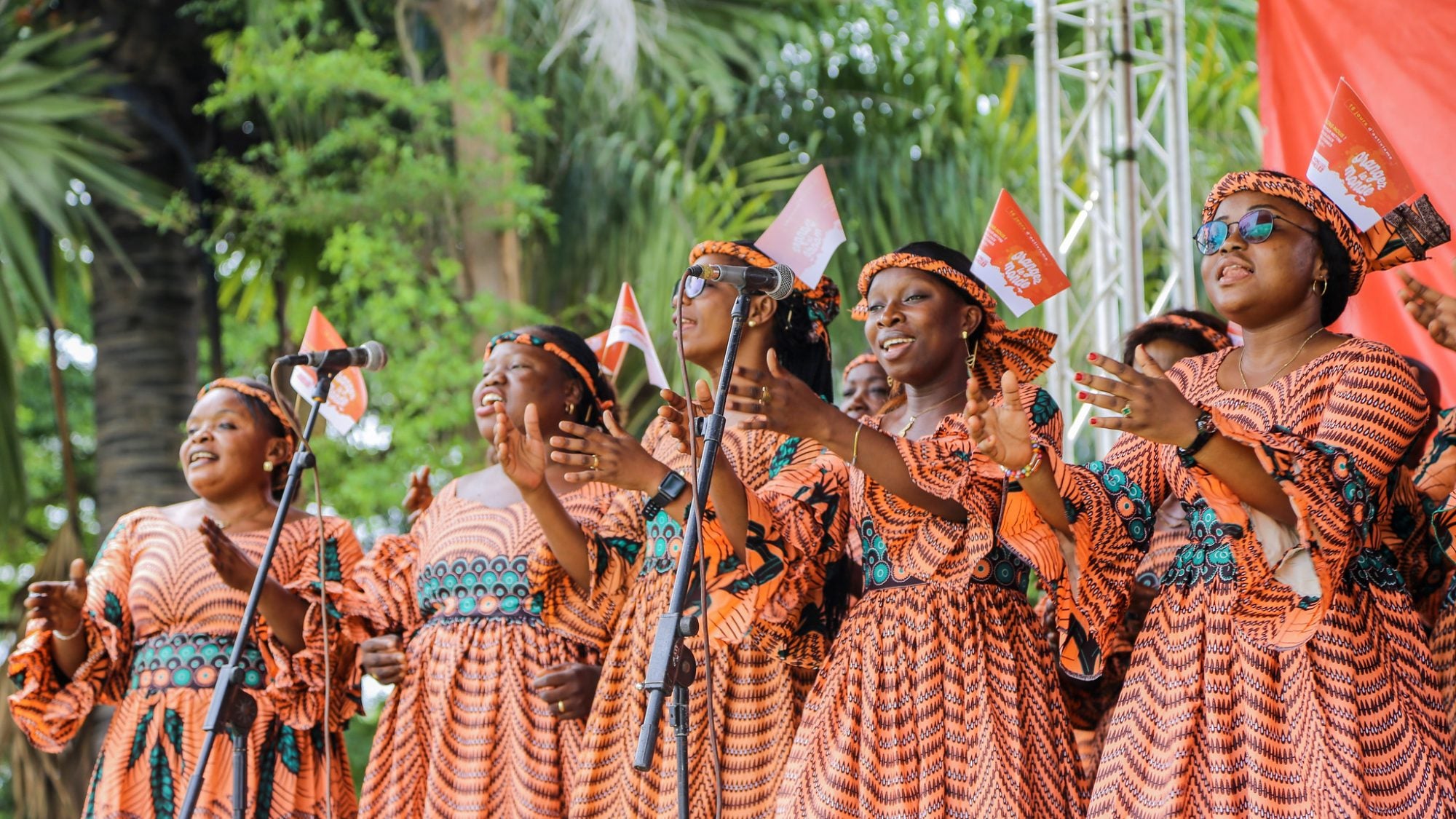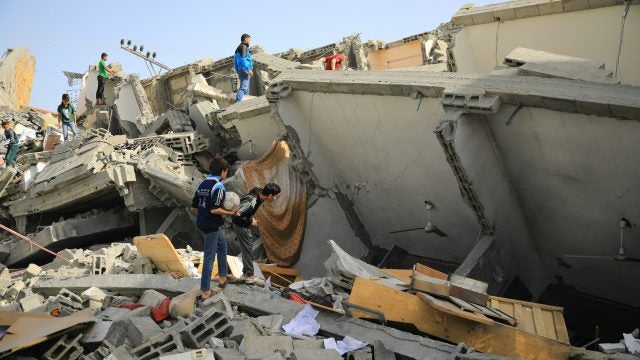
Title: Towards Gendered Peace in the Democratic Republic of the Congo
This article explores the gendered dynamics of armed conflict in the Democratic Republic of the Congo (DRC), shifting the focus from women’s victimhood to their often overlooked yet critical role in peacebuilding. Drawing on both formal and informal processes, it highlights how women contribute to conflict transformation and durable peace, despite being largely excluded from official negotiations. The article calls for revitalizing existing peace frameworks through a gender-responsive approach that recognizes women’s agency and integrates their voices at all levels of peacebuilding.
Introduction
In April 2025, the foreign ministers of the Democratic Republic of the Congo (DRC) and Rwanda met with the US Secretary of State to sign a Declaration of Principles another attempt to bring peace and stability to eastern DRC. This effort responds to a new wave of violence driven by the Rwanda-backed armed group Mouvement de 23 Mars (M23), originally formed in 2012 in reaction to the Congolese government’s alleged failure to uphold a 2009 peace agreement.
The DRC’s conflict is notorious for widespread sexual violence. Despite multiple attempts to neutralize armed groups and enforce peace, the situation for women and girls remains precarious. As M23 advanced into Goma and Bukavu, reports of sexual violence surfaced, with Amnesty International documenting several instances of gang rape. The UN High Commissioner for Human Rights reported a 270 percent increase in conflict-related sexual violence during January and February 2025. Pre-existing gender inequalities further heighten the vulnerability of women and girls to such violence.
These inequalities are long-standing and extend beyond conflict. Institutional neglect has created systemic barriers to justice. Although the DRC passed a comprehensive law against sexual violence in 2006, survivors still face significant obstacles in accessing justice because of corruption, stigma, geographical remoteness, and lack of trained judicial staff. Moreover, political and judicial institutions offer little promise for reform, as women remain vastly underrepresented—only about twelve percent in the national parliament and nine percent in provincial assemblies.
While the 2006 Constitution and electoral laws call for equal political participation, systemic attitudes continue to suppress women’s involvement. Male-dominated patronage networks control political life, and the few women who enter politics face stereotyping and marginalization. Excluded from justice and political reform, women remain exposed and unsupported during conflict—vulnerabilities that are only amplified when institutional protections fail.
Although conflict increases women’s insecurity, this article moves beyond narratives of victimhood to spotlight women’s overlooked contributions to peacebuilding. It critically examines their potential to resolve the very conflicts that disproportionally impact them. First, this article reviews women’s prior involvement in DRC peace processes and how their contributions were undermined. Second, it explores the theoretical foundations for inclusive peacebuilding and their relevance in the DRC. Finally, it proposes concrete mechanisms to ensure women’s inclusion in current and future peace efforts.
Unrecognized Peacebuilders
Women’s roles in both formal and informal peace efforts in the DRC have largely gone unnoticed. Their limited participation in the Inter-Congolese Dialogue, a major internationally backed negotiation process, nonetheless played an understated role in shaping the 2002 Sun City Agreement, which formally ended the Second Congo War (1998-2003). As described in the documentary The Road to Sun City, a few brave Congolese women participated in the margins of the process. Women made up between ten and sixteen percent of participants overall but were mainly assigned to “women’s issues,” primarily sexual violence. They were excluded from formal negotiations, which remained the domain of armed group and government leaders. Consequently, many of the commitments made during the Dialogue remained unmet, reflected in the continued prevalence of sexual violence and exclusion of women from decision-making.
The 2013 Framework Agreement for Peace, Security, and Cooperation for the DRC and the Great Lakes Region (PSC-F) was designed to address the causes of the earlier M23 rebellion and promote regional stability. However, a gender audit conducted by International Alert and Kvinna till Kvinna found the agreement to be gender-blind and lacking any formal female representation during negotiations. Lessons from parallel initiatives, such as the revised International Security and Stabilization Support Strategy (ISSSS), which aimed to center women’s roles in peacebuilding, were ignored in the PSC-F’s design.
Years of international peacebuilding in the DRC have failed to acknowledge women’s vital contributions to resolving structural drivers of conflict. Since the PSC-F’s adoption, regional efforts such as the Women’s Platform for the PSC-F and the High-Level Regional Forum of Women of the Great Lakes Region have promoted the women, peace, and security agenda. Still, these initiatives should not serve as a substitute for formal inclusion in official peace processes. Women’s inclusion, at all levels, is not only beneficial—it is essential to building sustainable peace, as demonstrated by both lived experiences and academic research.
Toward Gender-Responsive Peacebuilding
Pankhurst and colleagues define “gendered peace” as a peace process that centers women’s agency at every stage of conflict resolution. Globally, women have had less access to high-level “Track I” negotiations but have often played more active roles in“Track II” and “Track III” negotiations targeting mid-range officials and grassroots activists. This mirrors the experience of Congolese women at Sun City, where they were included in side events but excluded from official talks. The concept of gendered peace underscores the often unrecognized but vital contributions of Congolese women.
When women are included, they frequently emerge as key drivers of localized conflict transformation. Their activism is often expressed through grassroots networks rooted in familial and community roles. These connections allow women to mediate across ethnic divisions and even negotiate with armed actors, directly or through family intermediaries. In eastern DRC, women have reached out to combatants and informed them of provincial or national peace efforts. Yet, despite their indispensable role in grassroots peacebuilding, these initiatives remain largely invisible in formal peace processes.
Recommendations
As the international community faces another security crisis in the DRC, it is imperative to learn from past failures. More than ten years have passed since the PSC-F was signed and heralded as a landmark agreement for the Great Lakes region. Yet, the presence of women and other civil society actors in the negotiation and implementation of the framework remains noticeably absent. Achieving lasting peace in the DRC requires a multifaceted and inclusive approach that integrates the voices and contributions of a broad range of actors, including women. Rather than starting from scratch in 2025, efforts should focus on revitalizing and strengthening existing peace initiatives at various levels, while ensuring they are gender inclusive.
Furthermore, past lessons show that top-down initiatives alone are insufficient for sustaining peace; bottom-up approaches are equally essential. It is important to recognize and support women’s grassroots peacebuilding networks as formal contributors to national and regional peacebuilding efforts. Including women in official peace processes, and acknowledging their critical role in fostering everyday peace at the local level, increases the likelihood that peace agreements will reflect the lived realities of women and other marginalized groups.
As peace negotiations begin to take shape once again, it is time to apply the lessons learned from the Inter-Congolese Dialogue and subsequent peace efforts. The Congolese women’s movement must be granted an official seat at the negotiating table, not only to address sexual violence but also broader issues of governance, security, and economic reform, as outlined in the Declaration of Principles. A minimum of 30 percent representation of women, including grassroots and conflict-affected women, should be mandated in all official negotiation delegations and technical committees, from Track I initiatives to informal grassroots meetings.
With persistent dedication to the principles of gendered peace, the DRC can move toward a future where sustainable peace is not just an aspiration but a tangible reality for all its citizens. Achieving gendered peace is not only about women’s presence and participation in peace negotiations, it is also about ensuring their voice and agency once the violence subsides. Policy discourses that center women’s agency, not just their victimhood, must be promoted to acknowledge and support their essential role throughout the peacebuilding process.
…
Dr. Susanne Alldén is a peacebuilding, gender equality, and international development specialist, with extensive experience in UN peacekeeping missions, EU security sector missions, non-governmental organizations, and donor agencies in the DRC, Burkina Faso, and Rwanda. She is a senior lecturer in Peace and Development Studies at Linnaeus University, Sweden, and an affiliated researcher with the Centre d’Excellence Denis Mukwege at the African Evangelical University in Bukavu, DRC. She also serves on the scientific board of the International Center for Advanced Research and Training in Bukavu. Her research focuses on access to justice for survivors of sexual violence and women’s roles in post-conflict societies, drawing on field experience and interdisciplinary approaches.
Image Credit: UN Women/Carlos Ngeleka, CC BY-NC-ND 2.0, via Flickr
Recommended Articles

From the 1960s to the 1990s, the Danish government implemented the “Spiral Campaign,” a family planning policy that fitted four thousand and five hundred Inuit women and girls—many underage—with intrauterine…

This piece examines the UK government’s proscription of Palestine Action under the Terrorism Act, situating it within a broader trend of shrinking space for public dissent. It argues that the…

This article analyses the distortions of the International Humanitarian Law (IHL) notion of proportionality in the context of the Israel-Gaza war. It discusses Israel’s attempts to reinterpret proportionality to justify…